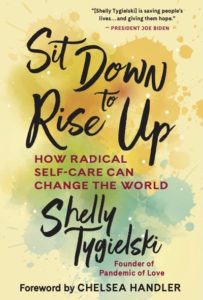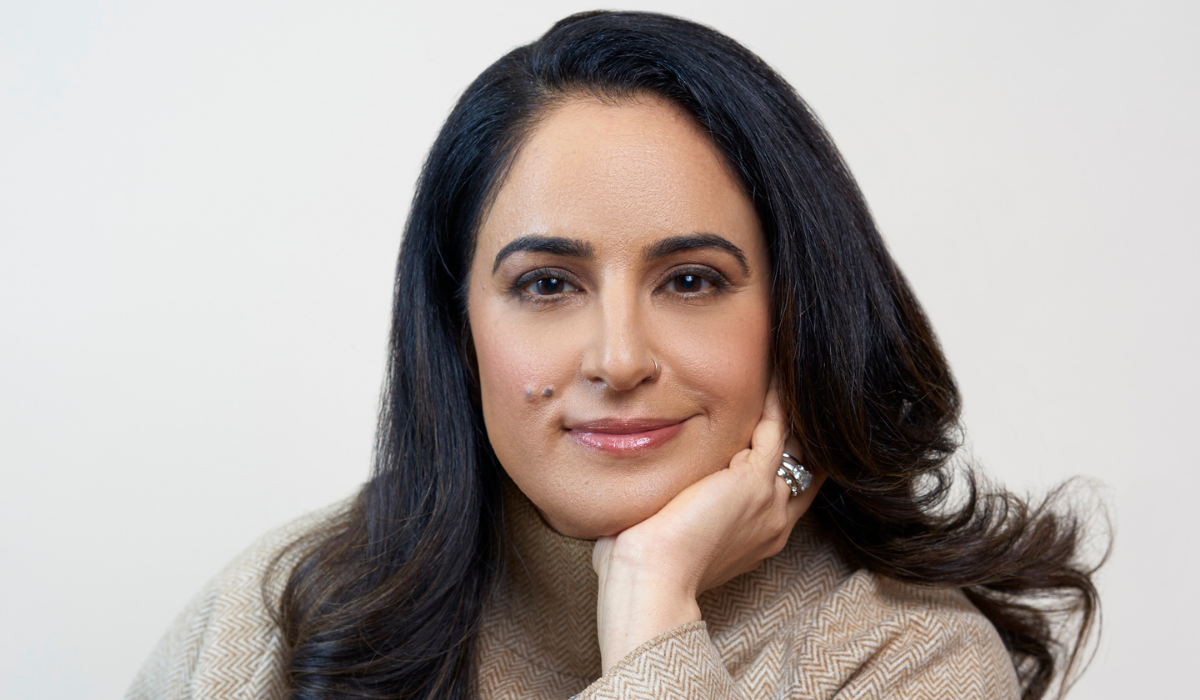Here's How to Channel Your Fear and Uncertainty Into a Life of Purpose and Hope
You say that all of us are born with a sense of agency…an ability to rise up and become an agent for social change, regardless of our circumstances. How, exactly, can we do this? How can we wake up to who we were called to be?
There's a beautiful Buddhist proverb I love so much: We should tend to the area of the garden we can reach. Oftentimes when we're in a situation where the problem is so big, so daunting…climate change, for example…we think, How can I even begin to fix this? Of course, one person can't solve all the world's problems. But what all of us can do is whittle it down to the areas where we can enact change. And that seems less daunting.The most important thing you can do is show up within your own circles of influence, with a commitment that everyone in your garden has enough. If we all took responsibility for just those individuals, and everyone else did the same, everyone would have enough. We wouldn't have to think that everyone in the world, or even everyone in our city has enough…just everyone on our block, or on the floor of our apartment building, or in our classroom or our office has enough.You talk about how the positive thinking movement isn't necessarily helpful. Tell us more.
I think there's this risk of toxic positivity, where we are glossing over things with our 'good vibes only” and 'everything's fine” attitude. That's not realistic in this world. Sure, that's a lofty and very noble thing to aspire towards. But we're human beings, and human beings have a whole array of emotions.There's a psychologist who was able to prove in his work that there are more than 33, 000 human emotions. Yet when we're constantly living in this pursuit of good vibes only, we're discounting at least half of those emotions. To have the whole human experience, we have to lean into all of our emotions, not numb ourselves out to things like fear and vulnerability and sadness and grief.When we take baby steps toward something, it can often feel like we're not actually contributing in a big way. What would you say to that?
 The littlest steps make a huge impact. I'm evidence of that. When I first started meditating, I showed up to meditate on a beach by myself. Slowly but surely, others started joining me. Before I knew it, we grew from a community of 12 friends to a community of 15, 000 meditators. It's a testament to the fact that if I didn't show up for myself when nobody else showed up, we wouldn't have built that community.We paralyze ourselves when we think about the lofty goal. If I started Pandemic of Love with an attitude of 'I'm going to create this global movement and design this really great website and it's going to sit on a sequel server,” I would've been trapped by analysis and totally stunted, because I would've been after perfection. I think if we have the courage to understand that just doing one little bit every day…and doing it consistently…we can create major shifts. Rather than living life centered around lofty, daunting goals, why not try to live life centered around intention? When we can live life with intentionality, even just doing a little on a daily basis means our lives are more congruent with our purpose. That's when everything starts to flow.
The littlest steps make a huge impact. I'm evidence of that. When I first started meditating, I showed up to meditate on a beach by myself. Slowly but surely, others started joining me. Before I knew it, we grew from a community of 12 friends to a community of 15, 000 meditators. It's a testament to the fact that if I didn't show up for myself when nobody else showed up, we wouldn't have built that community.We paralyze ourselves when we think about the lofty goal. If I started Pandemic of Love with an attitude of 'I'm going to create this global movement and design this really great website and it's going to sit on a sequel server,” I would've been trapped by analysis and totally stunted, because I would've been after perfection. I think if we have the courage to understand that just doing one little bit every day…and doing it consistently…we can create major shifts. Rather than living life centered around lofty, daunting goals, why not try to live life centered around intention? When we can live life with intentionality, even just doing a little on a daily basis means our lives are more congruent with our purpose. That's when everything starts to flow.In your new book, you write about how radical self-care can change the world. What do you mean by this…and how can we all show ourselves more radical self-care?
So, the premise of radical self-care changing the world is that the best version of the world starts with the best version of us. But also, the inverse of this is true: The best version of us also starts with our connection to the world and our responsibility to our community.I think a lot of times when we talk about self-care, it's a far cry from what it really means. Many people think of self-care as an individualistic pursuit. But self-care is communal care, really. The only way we're ever going to heal ourselves and each other and the world is if we take this communal approach to self-care.Be sure to watch Maria's Conversation Above the Noise with Shelly on YouTube!
Please note that we may receive affiliate commissions from the sales of linked products.



